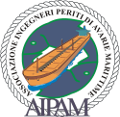Fuel Consumption vs Propulsion Performance Monitoring

There is quite a lot confusion about Fuel Consumption Monitoring and Propulsion Performance Monitoring, and even more regarding Propulsion Performance per se. The present article is just meant to give few pointers and clarifications regarding the above. Some comments are "tongue in cheek", I hope the readers will not mind... but the article is not a joke, quite the contrary.
First and foremost, fuel is burnt to convert chemical power into thermal power and thermal power into mechanical power.
The slow speed, two stroke, long stroke Diesel engine is king in this role due to its very high efficiency hence low Specific Fuel Oil Consumption, SFOC [g/kWh] (Please any of you out there, stop measuring engine power in horse power, thanks).
Once the mechanical energy is obtained we need to ensure that we use it efficiently for the intended use.
Therefore we have two totally independent processes:
1 the generation of power from the fuel
2 the utilisation of power (for propulsion, electrical services, other...)
To jump from fuel consumption to ship speed, skipping the power, is the first deadly sin of propulsion monitoring (and I suppose very many are guilty until proven innocent).
Now, in order to ensure efficient power generation (aside from good engine / propeller matching) the engine shall be kept in good running conditions. This means that the crew shall perform maintenance duly and timely, ensuring that the engine parameters are in the expected range. Is the fuel too dense at the injectors? The fuel atomization will not be optimal, there will be unburned fuel, sfoc will be higher. Are the T/C air filters dirty or is the ventilation in the engine room lacking or is the charge air cooler dirty? And we could go on discussing about lubricating oil quality, condition of piston rings, condition of turbine blading...
The fuel consumption against the generated mechanical energy is the measure of the fuel efficiency. The problem here is that it is easy to measure fuel consumption (in large or small time intervals) and many do, but very few measure the mechanical energy, which is the integral of the generated mechanical power over time. I assume that most of you don't measure the mechanical energy, making measurement of fuel consumption useful mainly for accounting rather than for engineering purposes.
So if you are measuring the fuel, but not the energy, well, you have some problems with item 1.
Now let us consider item 2, the actual use of the mechanical power. For sake of simplicity let us assume that the only service is propulsion.
Mechanical power is needed to propel the vessel, at the intended speed, in the experienced environmental conditions (waves, wind, current, depth to check for squat, air temperature, sea temperature and density), and at the in the experienced conditions of the ship (draught, trim, air resistance, hull fouling, propeller fouling...)
So, in assessing propulsion efficiency one must assess, in principle:
- Ship speed over ground and ship acceleration (ok, you are asking why acceleration, simple, the mass of a ship is is HUGE and even a small acceleration changes the power requirements, and the more one accelarates and decelerates the more fuel he will consume)
- Ship draft and trim (trim is a second order effect, but it is best to have, by the way, forget about dynamic trim adjustment while underway, adjust trim at departure and live with it), easy
- Engine power, rpm, torque, easy
- propeller rpm (if different from engine rpm) and pitch (in case of controllable pitch propeller), easy
- rudder angle, easy
- position of fin stabilizers (ok, your vessel is likely without), easy
- sea state condition (yes, it CAN and it SHOULD be measured, officer on watch estimate is not sufficient), this is not so easy
- wind speed and direction, easy
- current speed and direction (yes, it CAN and it SHOULD be measured), now, here things get more difficult, by the way, forget about the speed Log, it is way too imprecise, there are major players who prefer using speed over ground due the lack of precision of speed logs.
And you should measure all the above INSTANTLY, not taking averages of time (a very bad habits of many naval architects that still have trouble confusing average and steady state, see the previous remark about the need for measuring acceleration).
Once all the above is measured (and I am sure you do onboard your vessels, right?) then it is possible to ascertain how efficiently the power is being used to propel the vessel, by comparing the actual conditions with the reference conditions and by calculating how much power is "lost" due to internal or external conditions and constraints (fouled hull, master not keeping a straight course, bad weather, vessel stopped for 5 hours while en-route to do Main Engine maintenance...)
Another piece of advice, forget about noon reports for all the above.
If your company is using noon reports to monitor fuel consumption and propulsion then the situation is dire. The time interval between noon reports is so large that all correlations between the signals are lost, and the data is going to be swamped by noise, making the entire exercise futile. Garbage in Garbage out. You might think that you see who is performing better and who is performing worse, you might think you know why, but actually you have no clue in the largest majority of the cases.
Nowadays "internet" services are becoming popular also to monitor propulsion, as they are able to provide some infos at very little cost and trouble. True. However they lack what is probably the single most important measurement when it comes to propulsion monitoring: propeller rpm. Some services say that they "calculate" propeller rpm, they cannot. They use some statistical regressions to assume some "virtual" propeller rpm and end up changing the relations with the rest of the data. Therefore, if you are serious about propulsion monitoring, stay clear from such services.
If you are not really so serious about propulsion monitoring, but you still wants to have some data to report to the "top hats" well, for sure these services are still better than noon reports, and you can play the card of "digitalization", which always sounds nice.



